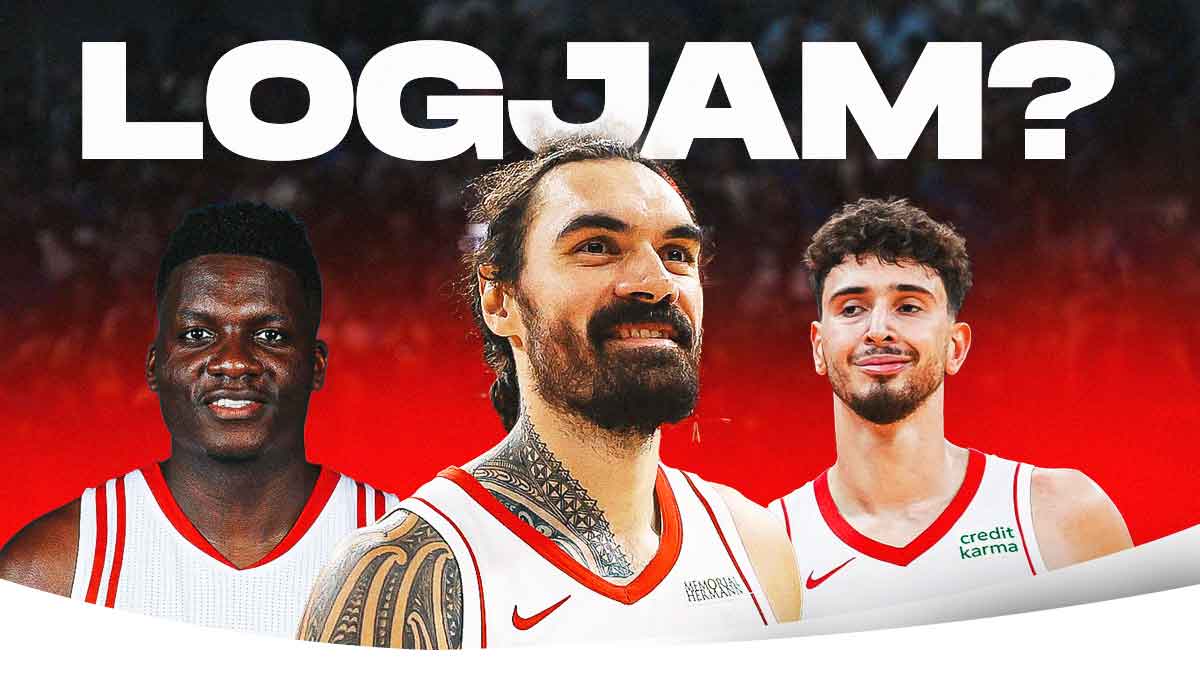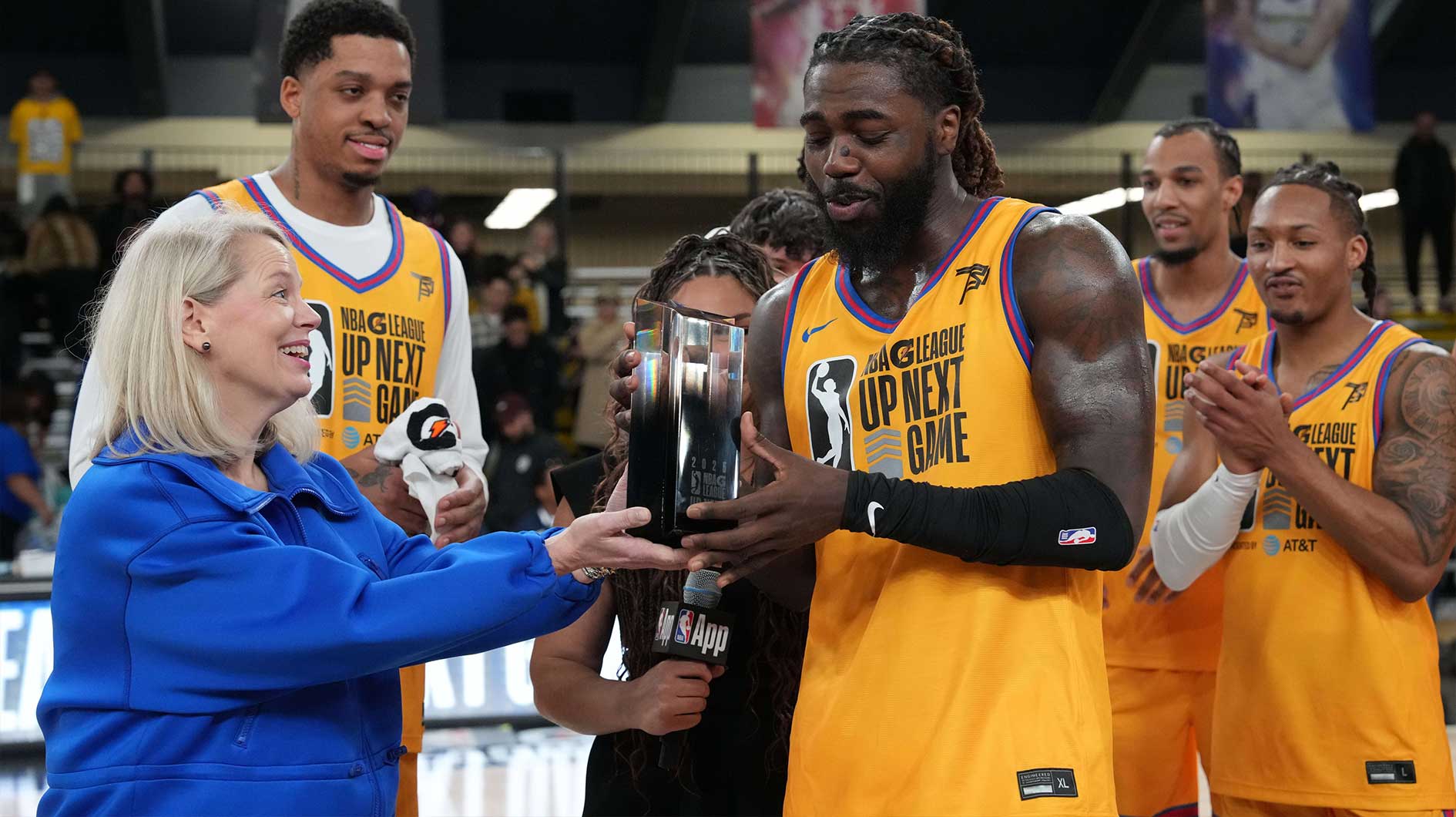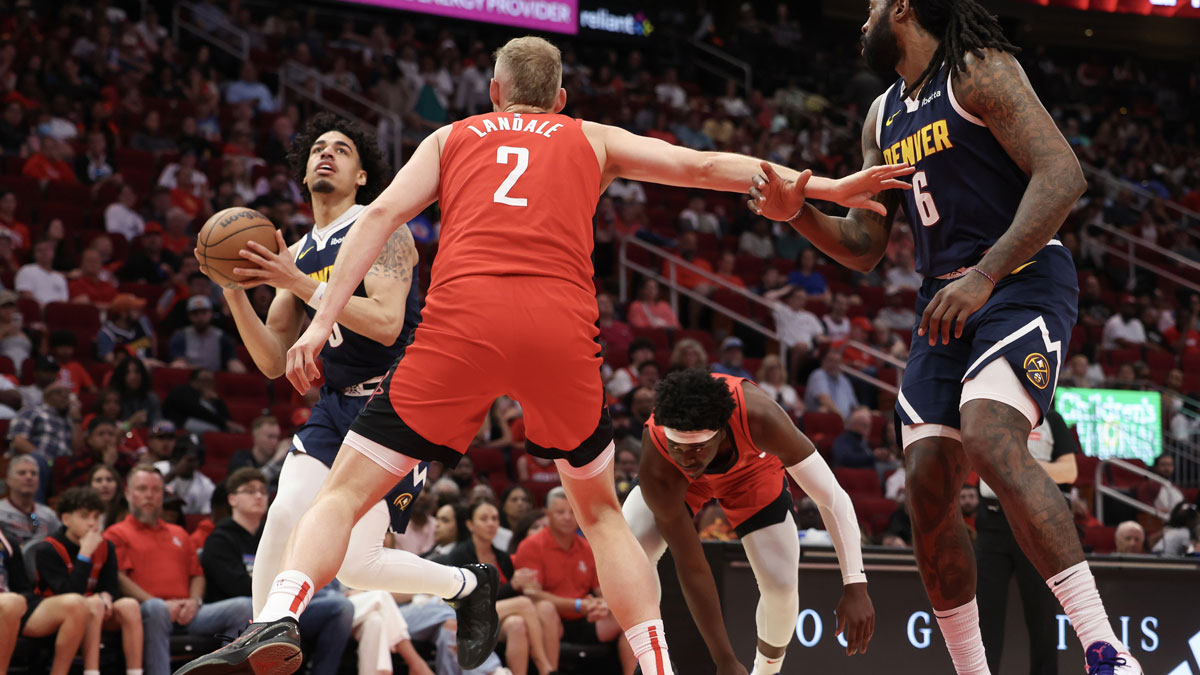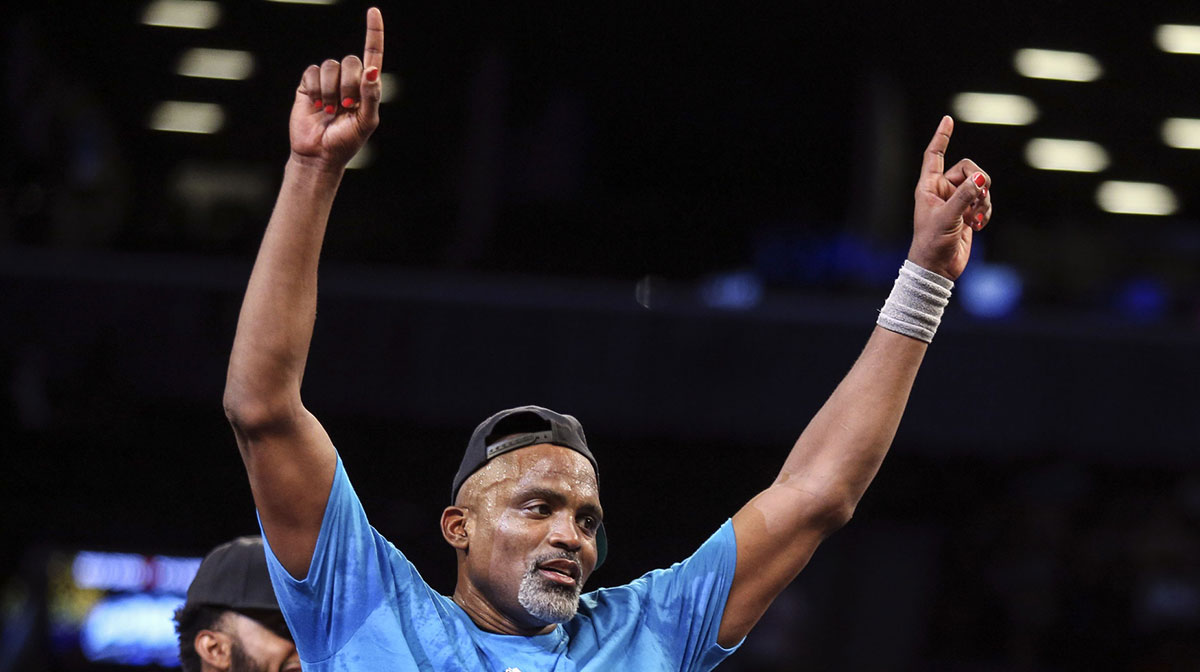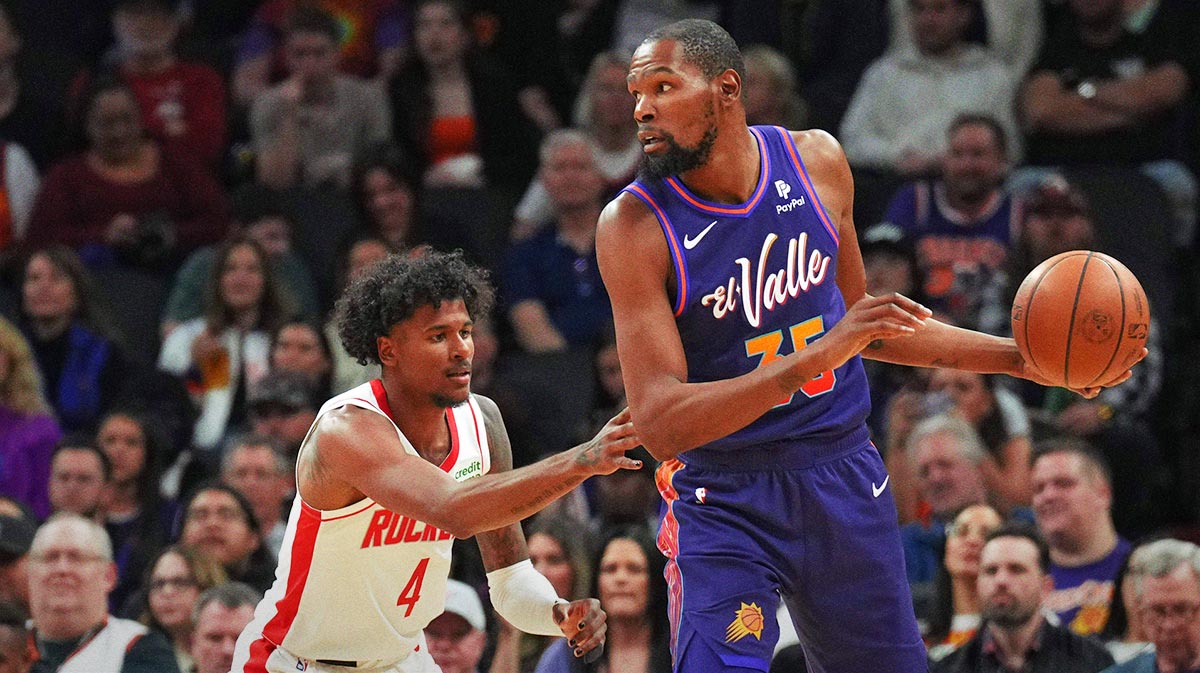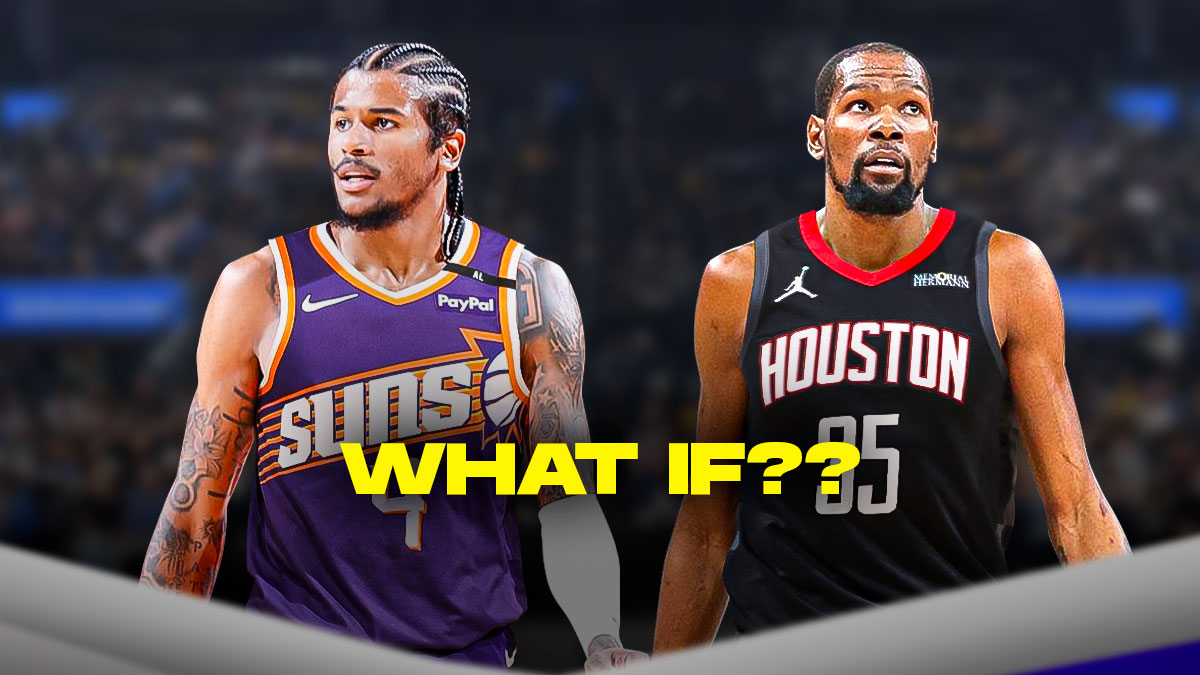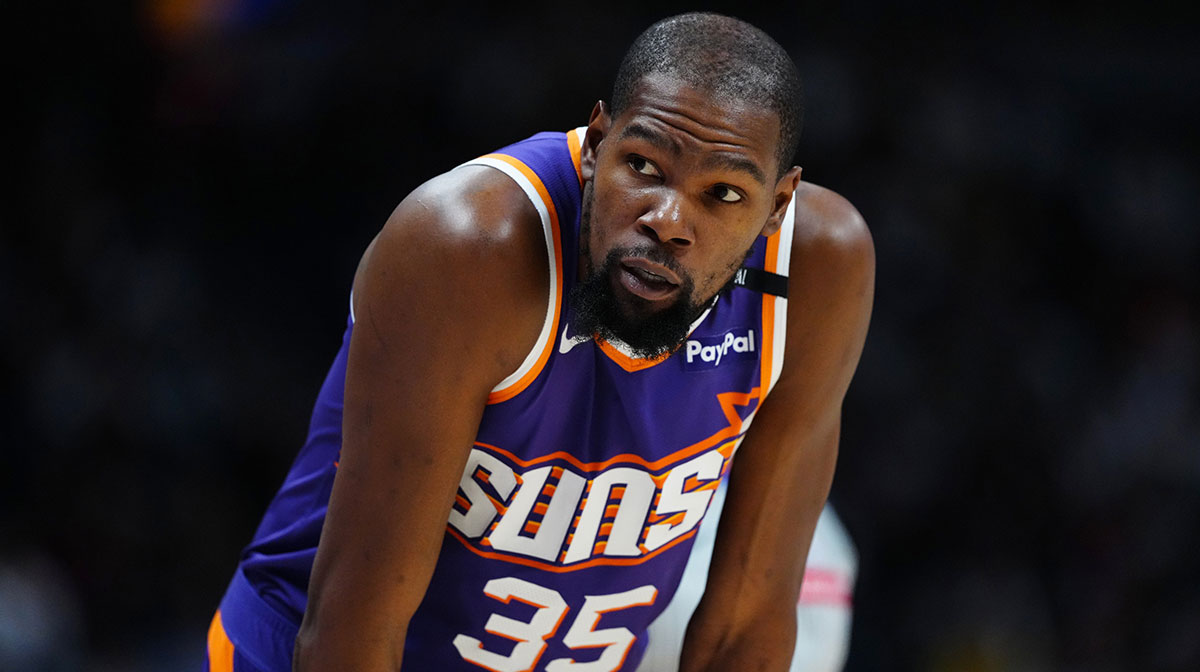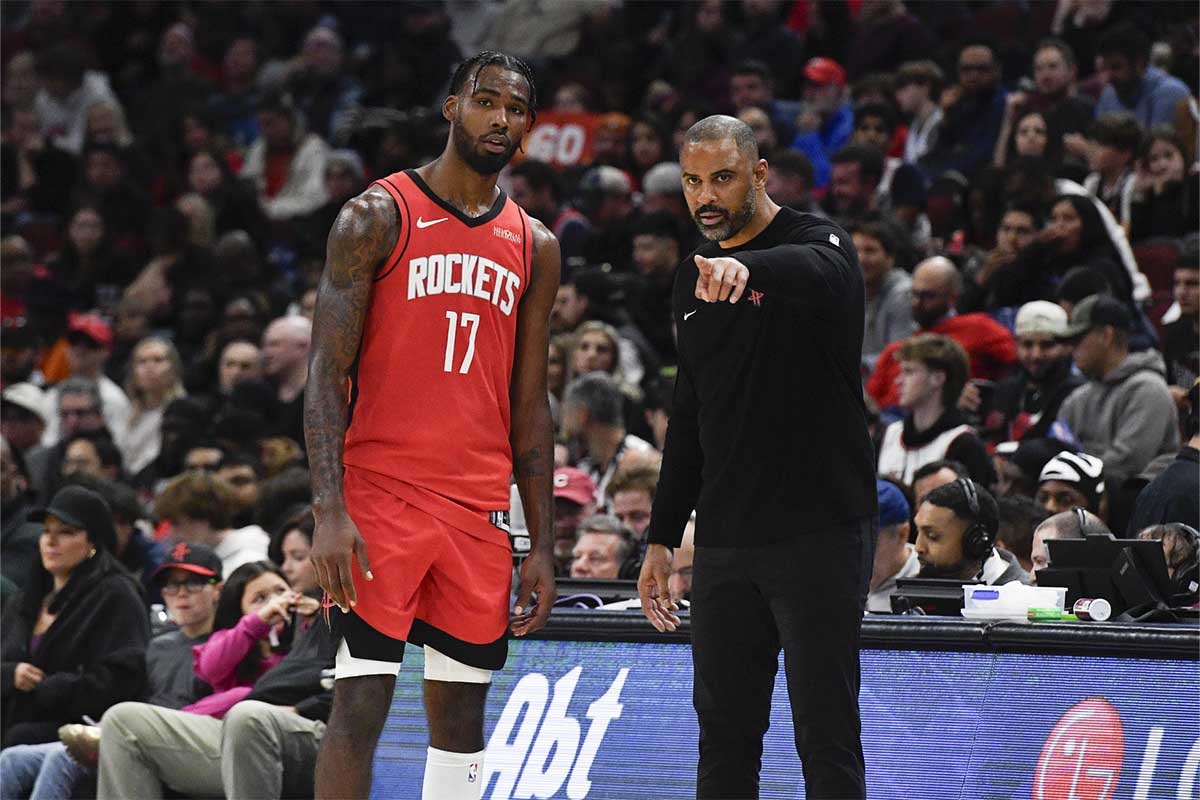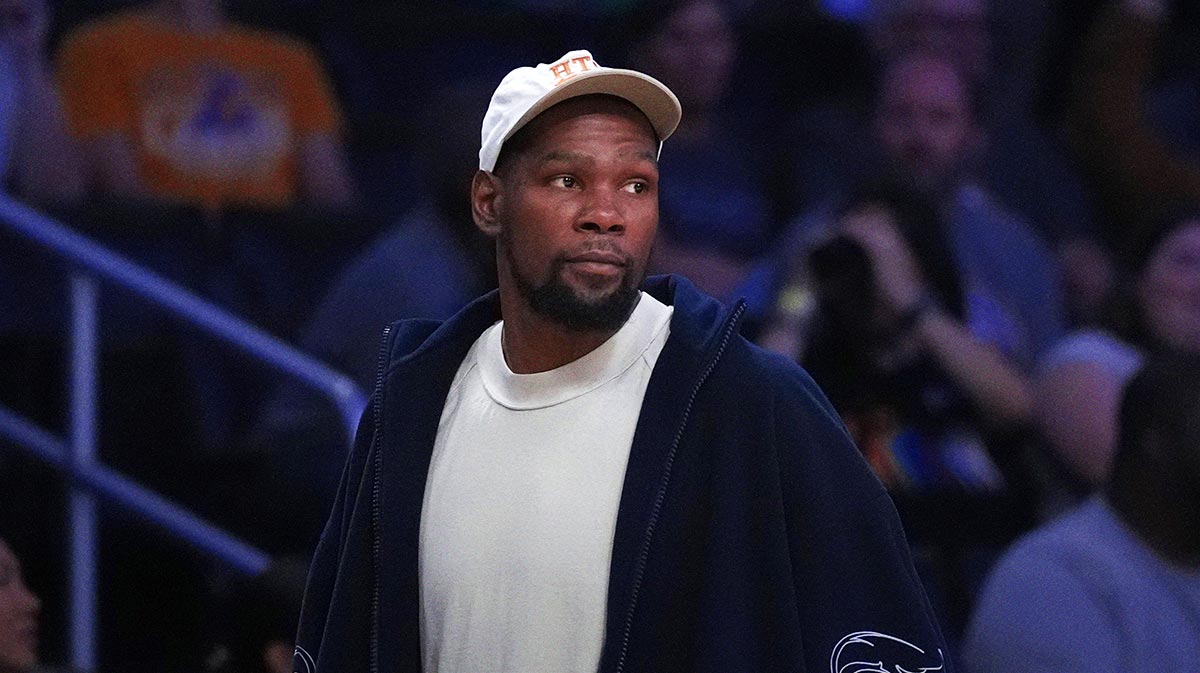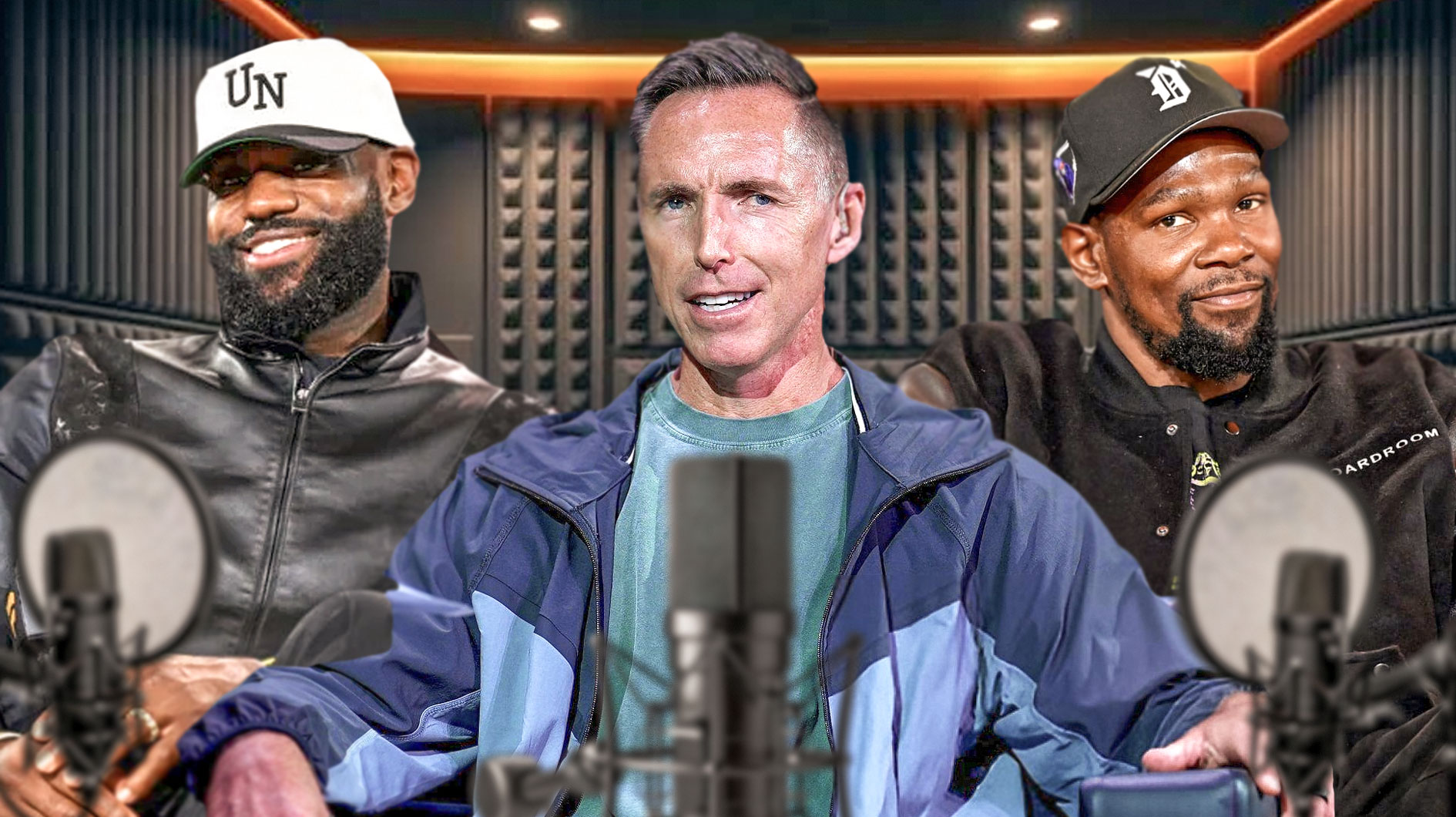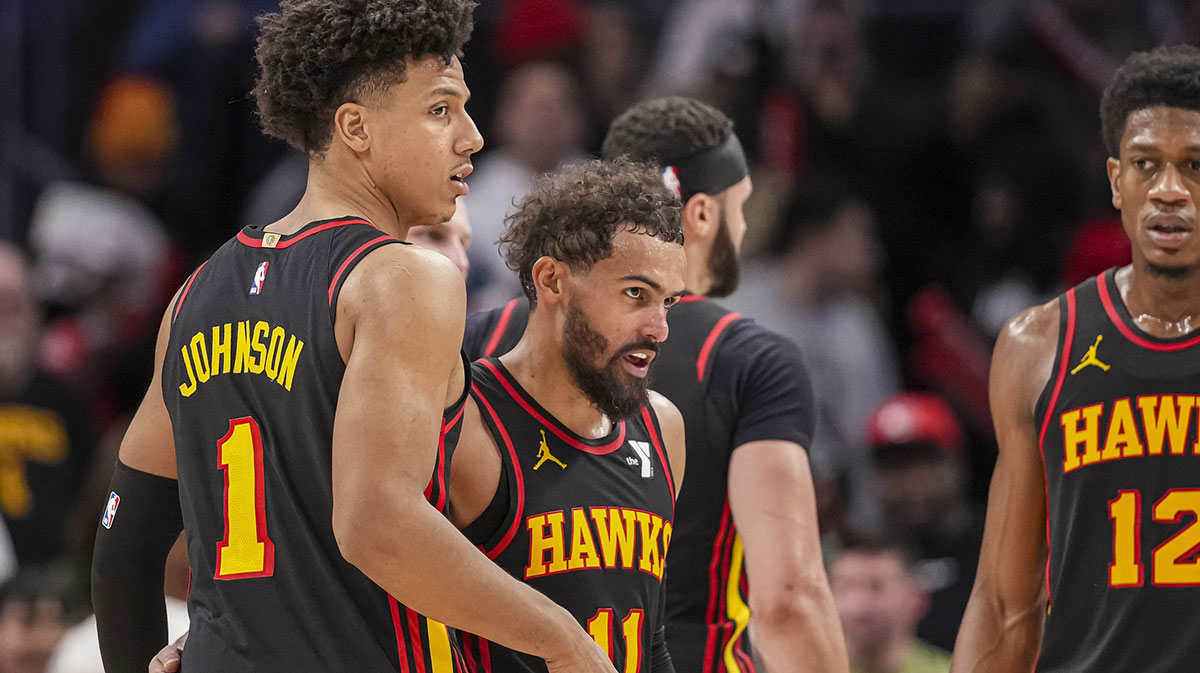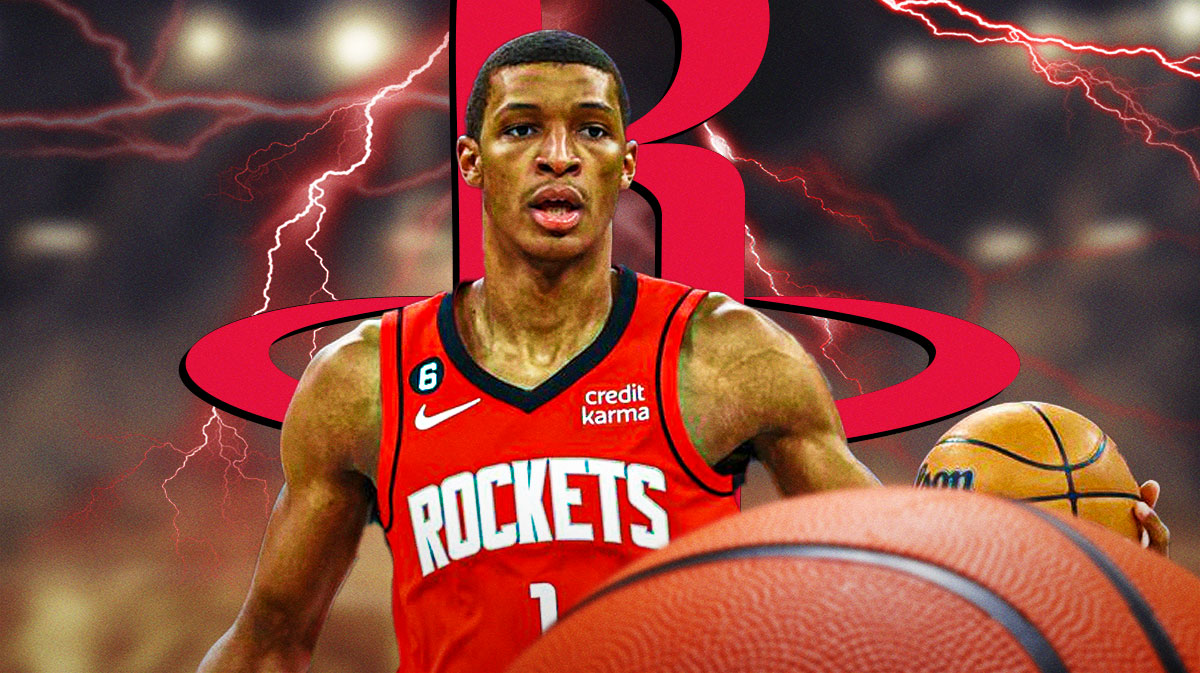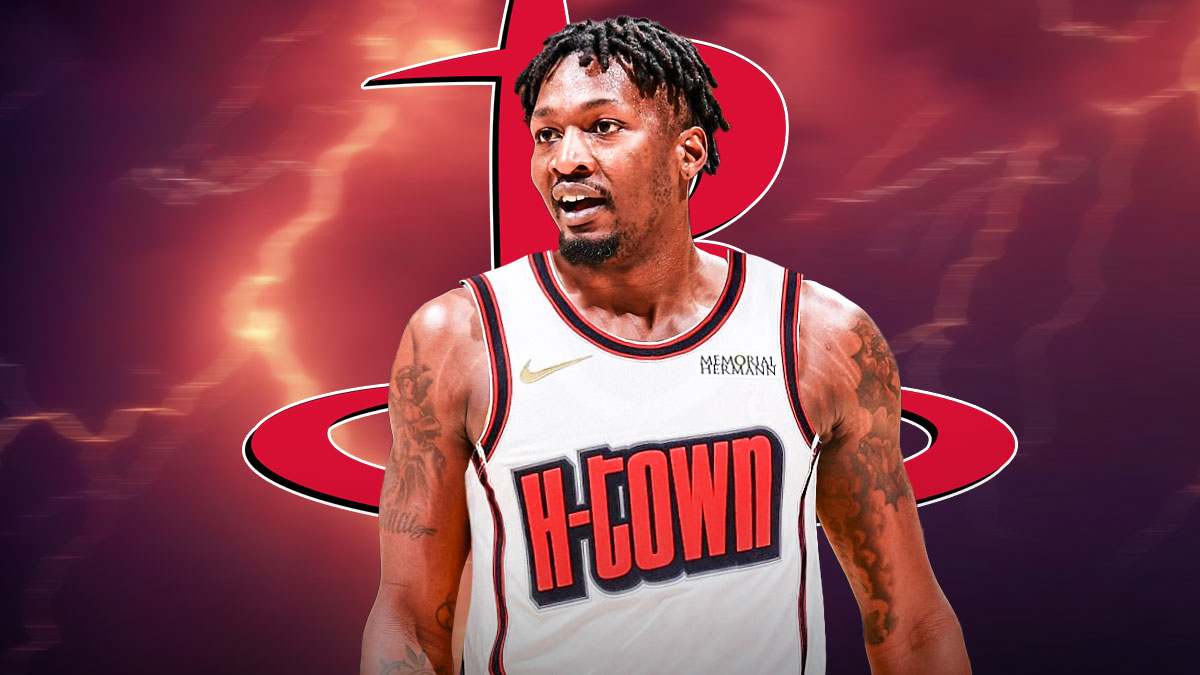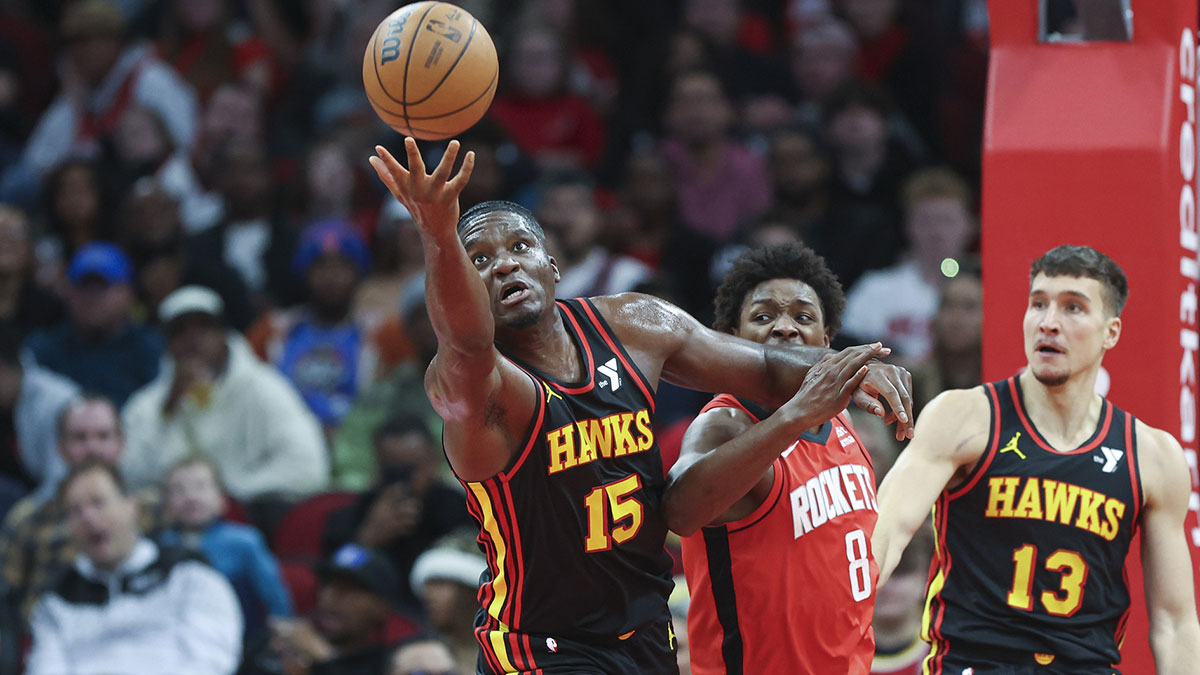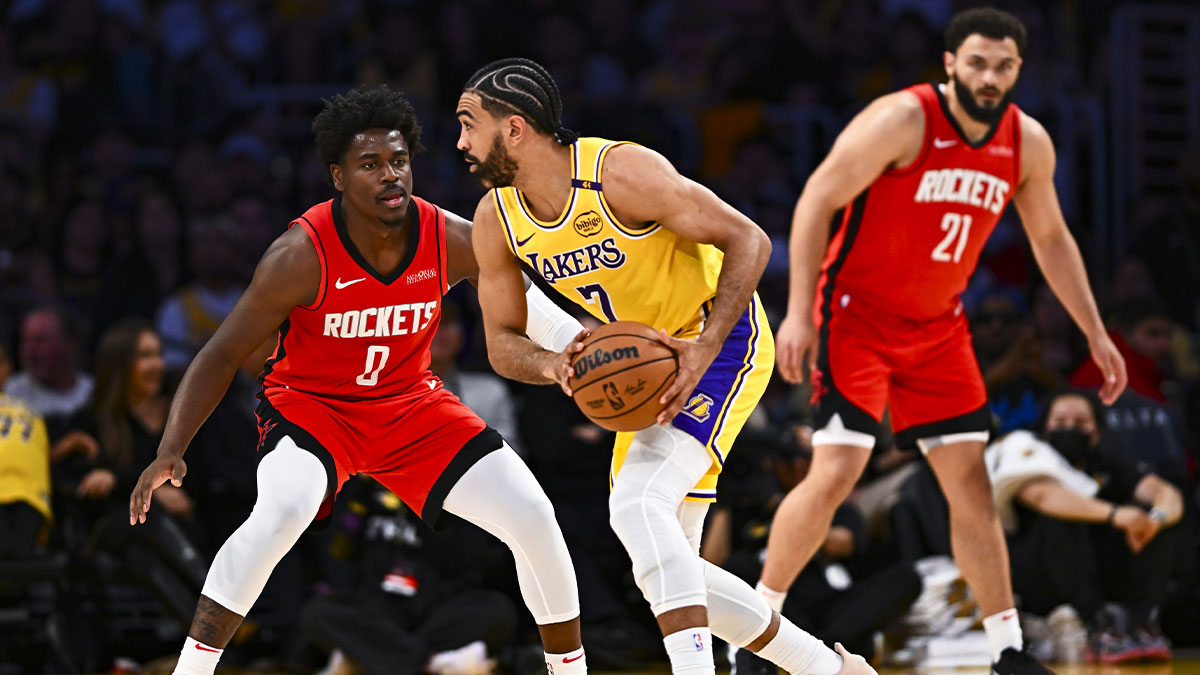On Monday, Carmelo Anthony finally put pen to paper on his one-year, $2.4 million contract with the Houston Rockets. And there’s some amount of irony in Anthony signing on with two men whose work led to the devaluation of his career in an effort to salvage what remains of it.
The NBA Melo entered as the third overall pick of the 2003 NBA Draft is vastly different from the one we see today.
Then, the basketball court was a much tougher place to maneuver. Offenses played at a snail’s pace, playing into the hands of physical defenses in a league where hand-checking choked the life out of movement. In that NBA, Carmelo Anthony’s individual scoring ability was the perfect crowbar to extract leverage for offenses lacking in sophistication.
Drafted by the Denver Nuggets, Anthony was billed as a natural foil for LeBron James in the same manner as Larry Bird and Magic Johnson.

Though he didn’t live up to that, in so many ways, Anthony lived up to the rest of the expectations of him coming out of college. Throughout his career, Anthony was one of the game’s greatest multifaceted, high-volume scorers. The only problem? What was valued on the basketball court shifted wildly away from what was expected of Anthony.
D’Antoni’s Seven Seconds or Less Phoenix Suns introduced an open, fast-paced style of basketball better equipped to counter defenses than Anthony’s isolation-driven exploits. Morey’s Rockets turbocharged that gap with an adherence to high-efficiency shot profiles (three-pointers and layups) that pushed the game away from Anthony’s preferred real estate and tempo.
The philosophies came to a head in New York, where Anthony clashed with D’Antoni with Carmelo winning the power struggle. Anthony put together one peak season sans D’Antoni before the Knicks stalled into something on the lower fringes of mediocrity.

D’Antoni, of course, went to the Los Angeles Lakers, where he clashed with other superstars whose basketball preferences strayed from his pace-and-space theology. He finally reemerged in Houston, where his philosophies found a kindred spirit in Morey and a perfect vehicle to drive it in James Harden.
Anthony, meanwhile, has devolved into something of a punchline. Perhaps his biggest flaw is the stubbornness in which he played while being good enough, for most of his career, to get away with it.
Basketball was something always played on his terms. In Denver, he pushed back against how George Karl wanted to deploy his talents. When he forced his way to New York, rather than waiting to sign outright in free agency, he pushed for the Knicks to unload a bevy of strong rotation players; keeping his Bird rights and most valuable contract options in place.
When he had the opportunity to time his contract with his peers to partake in the wave of super teams in his prime, Anthony instead signed for the most possible years.
And that’s okay.
It probably isn’t fair to say Anthony never cared about winning. His priorities were simply to do it on his terms. He consistently sought out the most money, but he also poured it into various communities and causes. He had opportunities to leave to better basketball situations, but preferred to live where he considered home.

Accompanying these priorities was the belief he was good enough to succeed on the court without sacrificing his priorities. He almost was.
Carmelo Anthony’s defense was never of quality. And though his passing is underrated, he has always under-utilized it. But scoring has always been the most valuable and difficult skill in the NBA. And Anthony was great at that.
Prior to Kevin Durant’s emergence, Anthony was often considered the greatest scorer in the league. The quality of his scoring never quite lived up to the volume of it, so this was probably always an overstatement. But he was, perhaps, among the most difficult players to guard. His strength was in the myriad ways in which he could score, blowing past slower defenders and overpowering smaller ones.
The sheer amount of utility makes him a useful commodity in the playoffs, when even the best systems can fall apart under intense scrutiny, when opponents can specifically game plan for an elite player with schemes and matchups. Anthony, in his prime, had answers for all as a scorer.
His problem was all of his considerable talents were always deployed in a very narrow way. He consumed a vast amount of resources, from shots and touches to on-court real estate and the need for defensive help and, in return, spun it into high-volume scoring on middling efficiency like Rumpelstiltskin spinning straw into timeshares instead of gold.

In the late 90s and early 2000s, this was a recipe for success. In the modern NBA, teams found ways to account for such players, budgeting for their impact while limiting every other factor to swing the math in their favor.
There was a formula for building successful, contending teams around Anthony. But such a roster was simply too specific and narrow for most front offices to construct and in New York, he would never have a competent one.
As he’s grown older, Anthony has required even more resources to ply his wares.
In Oklahoma City, he dutifully limited his role to fit around Russell Westbrook and Paul George but also expressed his displeasure in doing so. No single aspect of his skills is strong enough to thrive as a specialist in spite of his weaknesses. To get value from Anthony, a team must allow him access to the full breadth of his offensive game.
For the Thunder, diverting touches from Westbrook—a superior volume scorer at this point—was never an option. The rest of the roster, with limited shooting and playmakers, made life even tougher for his diminishing game.
His failures in Oklahoma City have painted him as an aging man hanging on too tightly to the ways of his youth. So, why should things go differently in Houston?
Because there’s still talent there.
Because D’Antoni’s philosophies fall closer in line to our values, it’s easy to overlook he too was once as stubborn as Anthony. His priorities were once to win on his terms more than winning itself. His dedication to his principles were often exposed by the likes of Gregg Popovich in the playoffs, with the San Antonio Spurs keying in on D’Antoni’s dogmatic principles to find victory as recently as the 2017 playoffs.
In Los Angeles, he rankled star players by giving minutes to players who fit his system instead of fitting his system around the talents of a player like Pau Gasol; toying with his role and minutes.

The D’Antoni who coaches the Rockets is not the same one who coached Anthony in New York. He’s not completely separated from his basketball ideals, but he’s certainly more malleable in how he deploys its principles.
Today’s Rockets spread the floor and employ his barrage of pick and rolls, but they’re often a means to setup isolations; a departure from D’Antoni’s preferred ball movement to take advantage of Harden’s scoring talents.
Carmelo Anthony must follow accordingly, not abandoning his basketball principles, but tweaking them to fall in line.
At his peak, Anthony favored having the ball in his hands and using the countless tools at his disposal to attack a single defender. Now, he must find ways to deploy each of those skills situationally. The footwork once used in isolations must be redistributed some towards cuts. His shooting and ability to read defenses must now work in attacking scrambling defenses instead of set ones.
He’ll need to do enough on the fringes to stay on the court long enough for the Rockets to use the aspects of his game that have defined his career. They can use it.
Houston infamously missed 27 consecutive three-pointers in Game 7 of the Western Conference Finals against the Golden State Warriors. The Rockets’ defense held up but the offense, lacking options beyond a Harden isolation or three-pointer, needed someone—ANYONE—capable of scoring in muddied waters.
The NBA that once moved to deemphasize the individual scorer is now working to dissolve the bonds that tie sophisticated offensive systems together. Switching defenses work to hide the seams of a defense, making it difficult for offenses to slither through the cracks.
In these instances, a crowbar like Carmelo Anthony—a large wing who can still physically exploit mismatches via a combination of size and skill—can still be useful for prying open defenses.
The styles of play D’Antoni and Morey each concocted helped to shift the hardwood floor out from under Anthony’s feet. Now, they’re counting on what they devalued to help counter the antibodies to what they’ve created.

